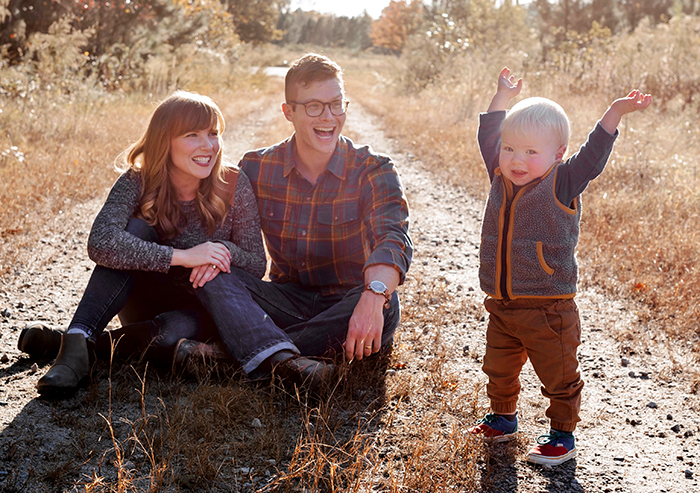
This week’s faculty spotlight shines on John Lyles, MD, clinical associate in the Department of Pediatrics in the Division of Gastroenterology, Hepatology and Nutrition. Lyles talks to us about how he became interested in medicine, particularly pediatric gastroenterology, and the challenges in caring for patients with disorders of the gut-brain axis. He also shares his reflections on his most significant mentor, Lisa Martin, PhD, and offers some insights into his research focused exploring options to offer IB-Stim to patients in addition to other related interests.
How long have you been at Duke? How did you decide to come here?
I started at Duke in August 2020. Coming to Duke was, in a way, coming home for my family. My wife, Becky, grew up in Carrboro (where her family still lives… three doors down from us) and completed her Master’s degree here at Duke University while working as a PCICU nurse. When it came to the job, I could not have asked for a better working environment as a part of the Department of Pediatrics and Division of Gastroenterology.
What are your current responsibilities within the Department of Pediatrics? What does your typical day look like?
I am a Clinical Associate in the Division of Gastroenterology, Hepatology, and Nutrition, so my role is dedicated to the clinical care of patients. My clinic is at the Duke Children’s Specialty Services of Brier Creek and I perform endoscopic procedures at the Children’s Health Center.
How and when did you initially become interested in medicine? What made you decide to pursue a career in pediatric gastroenterology in particular?
My [much] older siblings are both physicians who came home from university breaks regaling me at the dinner table with stories of medical school and training. My sister thinks I copied her love of pediatrics, while my brother thinks I am walking in his footsteps as a gastroenterologist. Ultimately, I chose pediatric gastroenterology because I wanted to make a tangible impact in the lives of young people. Pediatric gastroenterology is the perfect trifecta between outpatient, inpatient, and procedural work. I especially like the procedural aspect of my job in that we have the opportunity to diagnose and intervene.
What do you see as the biggest current challenges and opportunities in the field of pediatric gastroenterology?
I think the most challenging aspects of pediatric gastroenterology are the disorders of the gut-brain axis, formerly functional abdominal pain syndromes. These disorders, such as irritable bowel syndrome, are difficult for patients, families, and providers (myself included) to conceptualize and manage. Adolescent patients with EoE are also especially challenging due to poor therapy adherence. Therefore, it is especially exciting to advocate for newer therapeutic approaches in both disorders of the gut-brain axis in the form of peripheral electrical nerve field stimulators (IB-Stim) and biologic therapies for EoE that can be administered less frequently and hopefully improve patient adherence to therapy.
Is there any research or other special projects you are doing or plan on doing?
Dr. Mary Boruta and I are exploring options to offer IB-Stim to our patients, and I am in the process of becoming a sub-investigator on the AK002 drug trial for EoE with Dr. David Leiman (Duke Adult GI). In the near future, I hope to work toward offering transnasal endoscopy to our adolescent patients with EoE for follow up endoscopies and also hope to work with Dr. Leiman on a program for our adolescent patients with EoE to successfully transfer to our adult colleagues at Duke.

What do you enjoy most about your work?
The interactions with patients and their families are the most enjoyable aspects of my work. I truly enjoy meeting them, discussing their problems, and developing a plan with them.
Who was your most significant mentor and what knowledge did you gain through this collaboration?
Dr. Lisa Martin, a PhD trained statistical geneticist at Cincinnati Children’s, pushed me to bring clarity to a shapeless glob of ideas during fellowship. She guided me through the project’s development, presentations, and countless manuscript revisions. She was my most consistent and outspoken advocate. But above all else she was a great listener.
Do you have any advice for trainees?
Medicine is a constant discussion, and we are all always learning from one another, so leave your ego at the door. Approach challenges as opportunities but do not be afraid to say “I don’t know” and seek help or understanding. Listen, really listen, to your patients. Find a mentor who you can not only share your victories but also your fears with.
What passions or hobbies do you have outside of Duke?
I love spending time with my wife and 17 month-old son. We love walking in our neighborhood, through the woods behind our house, and visiting the Museum of Life and Science. I also enjoy cultivating succulents and orchids, reading, and fishing. On Saturdays during the fall: Roll Tide!